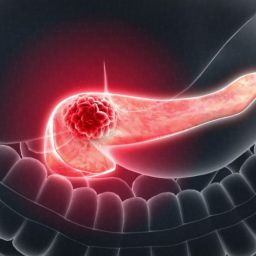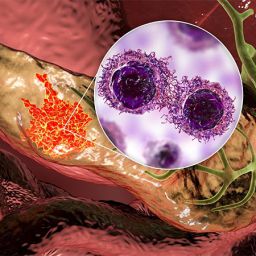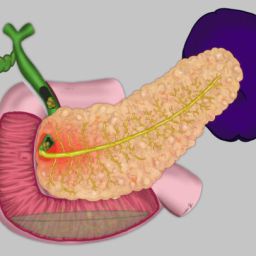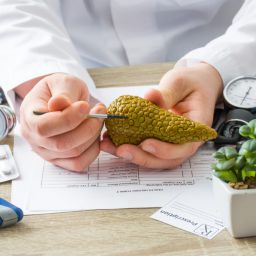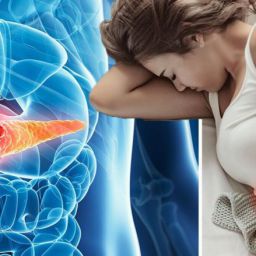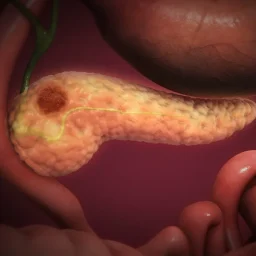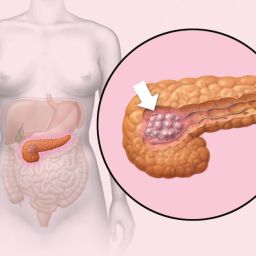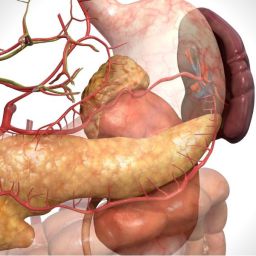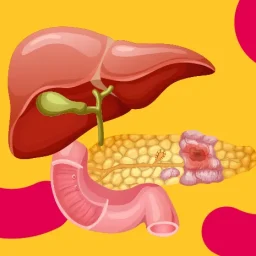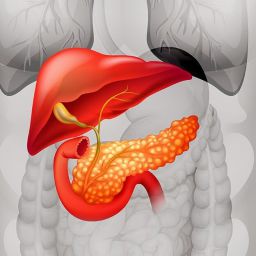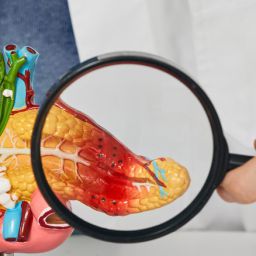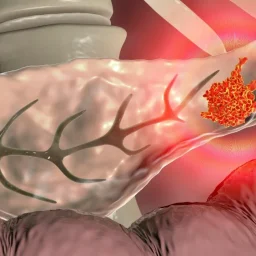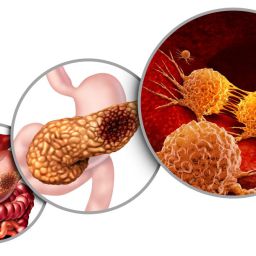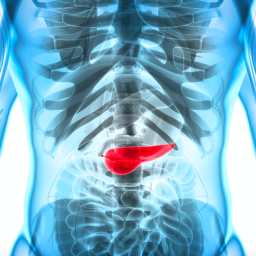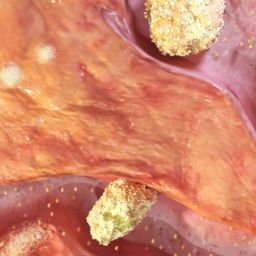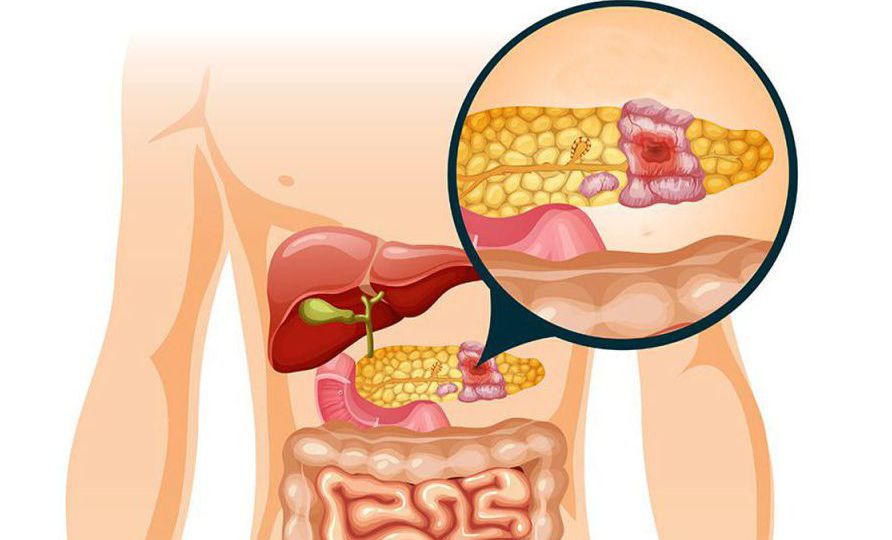
1The Role of the Pancreas in Digestion
The pancreas produces enzymes necessary for digestion and insulin to regulate blood sugar levels. When there are cysts in the pancreas, these functions can be impaired, leading to digestive disturbances. A healthy pancreas helps break down fats, proteins, and carbohydrates, but if the organ is inflamed or compromised, digestion becomes inefficient.
Pancreatic cysts can exacerbate digestive issues by blocking pancreatic ducts, leading to poor enzyme secretion, which in turn affects nutrient absorption and digestion.
2. The Link Between Diet and Pancreatic Cysts
Diet can play an important role in managing pancreatic cysts, particularly in reducing inflammation, supporting digestion, and preventing complications. Certain foods can aggravate symptoms by causing inflammation, increasing pancreatic stress, or triggering digestive problems. By choosing the right foods, individuals with pancreatic cysts may improve their overall health and reduce discomfort.
Here are some foods that can be harmful for individuals with pancreatic cysts:
3. Foods to Avoid with Pancreatic Cysts
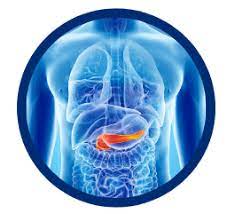
3.1. Fatty Foods
Fatty foods, especially those high in unhealthy saturated and trans fats, can place a significant strain on the pancreas. When the pancreas is inflamed or already stressed due to cysts, it struggles to produce adequate enzymes to properly digest fats. This can lead to bloating, nausea, and discomfort.
- Examples of fatty foods to avoid:
- Fried foods
- Fast food
- Processed meats (such as bacon and sausages)
- Full-fat dairy products (cheese, butter, cream)
- High-fat cuts of meat (such as steak and pork belly)
3.2. Spicy Foods
Spicy foods can irritate the digestive system, especially in individuals with pancreatic issues. Spices such as chili, hot sauce, and spicy peppers can trigger pain and discomfort in the abdominal region, particularly if the cysts are inflamed. Moreover, spicy foods can increase acid production in the stomach, which can worsen symptoms of acid reflux and indigestion.
- Examples of spicy foods to avoid:
- Hot peppers (e.g., jalapeños, habaneros)
- Spicy sauces (e.g., hot salsa, curry)
- Spicy processed snacks (e.g., spicy chips)
3.3. Alcohol
Alcohol consumption can have a negative impact on the pancreas, especially for those with pancreatitis or pancreatic cysts. Alcohol can irritate the pancreas, cause inflammation, and worsen symptoms such as pain and bloating. Chronic alcohol use is also a significant risk factor for developing pancreatic diseases, including pancreatitis and pancreatic cancer.
- Examples of alcoholic beverages to avoid:
- Beer
- Wine
- Liquor and cocktails
It’s important for individuals with pancreatic cysts to limit or avoid alcohol entirely to promote healing and reduce inflammation.
3.4. Sugary and Processed Foods
Highly processed foods that are rich in sugar, refined carbohydrates, and artificial additives can increase inflammation in the body and contribute to poor digestion. These foods place an extra burden on the pancreas, as it must work harder to process sugars and maintain blood sugar levels. Moreover, consuming sugary foods can lead to spikes in insulin levels, which could exacerbate existing pancreatic issues.
- Examples of sugary and processed foods to avoid:
- Sugary desserts (cakes, cookies, pastries)
- Sugary beverages (sodas, energy drinks, sweetened juices)
- Processed snacks (chips, cookies, and candy)
A diet high in refined sugars can also contribute to the development of conditions like insulin resistance and diabetes, which are problematic for those with pancreatic issues.
3.5. Dairy Products (Full-Fat)
Full-fat dairy products are rich in fat, which the pancreas may have difficulty digesting. Additionally, some individuals may experience lactose intolerance, which can lead to bloating, gas, and diarrhea. Low-fat or non-dairy alternatives may be better choices for people with pancreatic cysts.
- Examples of dairy products to avoid:
- Whole milk
- Full-fat cheese and cream
- Butter
Choosing lower-fat or plant-based alternatives like almond milk or soy milk can be beneficial for people with pancreatic cysts.
4. Foods That May Be Beneficial for Pancreatic Cysts
While there are foods that should be avoided, there are also foods that may help promote digestion, reduce inflammation, and support overall pancreatic health. A diet rich in whole, nutrient-dense foods can be beneficial for managing pancreatic cysts and improving quality of life.
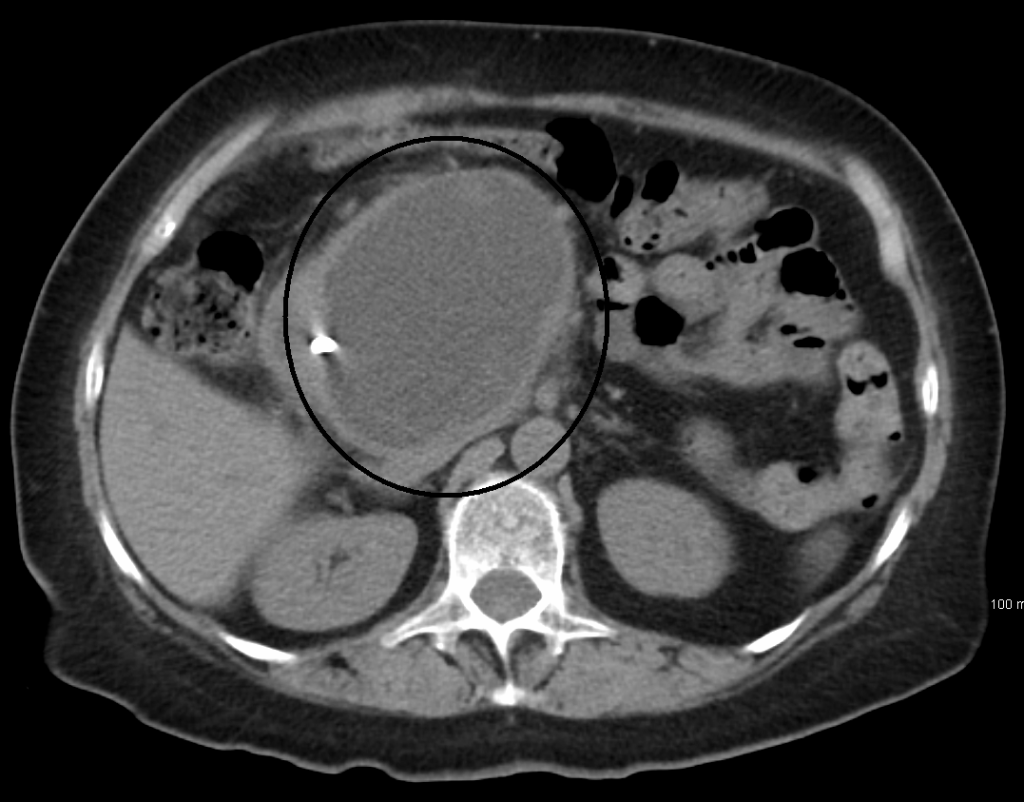
4.1. Lean Proteins
Lean proteins are easier for the pancreas to process compared to fatty cuts of meat. They provide essential nutrients without overwhelming the digestive system. Good sources of lean protein include:
- Skinless poultry (chicken, turkey)
- Fish (especially fatty fish like salmon, which is high in omega-3 fatty acids)
- Legumes (beans, lentils, chickpeas)
- Tofu and other plant-based proteins
4.2. Whole Grains
Whole grains are high in fiber, which aids in digestion and can help prevent constipation, a common issue for people with pancreatic cysts. Foods like brown rice, quinoa, and whole wheat bread also provide vitamins, minerals, and antioxidants that support overall health.
- Examples of whole grains:
- Brown rice
- Oats
- Barley
- Quinoa
4.3. Vegetables and Fruits
Fresh fruits and vegetables are high in antioxidants, vitamins, and fiber, which can help reduce inflammation and promote digestion. They are also generally easy to digest and provide important nutrients for the body.
- Examples of beneficial vegetables and fruits:
- Leafy greens (spinach, kale)
- Carrots
- Berries (blueberries, strawberries)
- Apples (with skin)
- Cucumbers and zucchinis
Eating a variety of colorful vegetables and fruits ensures that the body receives a wide range of essential nutrients to support pancreatic health.
4.4. Healthy Fats
Healthy fats, such as those found in avocados, olive oil, and nuts, provide anti-inflammatory properties and support overall health without overwhelming the pancreas. These fats are easier to digest compared to saturated or trans fats.
- Examples of healthy fats:
- Avocados
- Olive oil
- Nuts and seeds (almonds, walnuts, chia seeds)
4.5. Hydration
Staying hydrated is essential for overall health and can aid digestion. Drinking plenty of water throughout the day ensures that the digestive system functions properly and helps the body flush out toxins. Coconut water and herbal teas (such as chamomile or ginger tea) can also be soothing for individuals with pancreatic issues.
5. Creating a Pancreatic-Friendly Diet Plan
A balanced and thoughtful diet is essential for those managing pancreatic cysts. While avoiding harmful foods is critical, it’s equally important to incorporate foods that promote pancreatic health. Here’s a sample day of a pancreas-friendly diet:
- Breakfast: Oatmeal with almond milk, topped with fresh berries and a sprinkle of chia seeds.
- Lunch: Grilled chicken breast with a quinoa salad (mixed with cucumbers, spinach, and olive oil).
- Snack: A handful of almonds and an apple.
- Dinner: Baked salmon with steamed vegetables (broccoli, carrots) and a side of brown rice.
- Beverage: Water or herbal tea.
Diet plays a significant role in the management of pancreatic cysts. While there is no universal diet, avoiding certain harmful foods and incorporating nutrient-rich, easily digestible options can help reduce symptoms and support overall pancreatic health. A balanced diet focusing on lean proteins, healthy fats, whole grains, and fresh fruits and vegetables can provide the necessary support for those with pancreatic cysts.
By being mindful of what you eat, individuals with pancreatic cysts can better manage their condition, minimize inflammation, and improve their quality of life. As always, consulting with a healthcare professional or dietitian is recommended to tailor a diet plan that best suits individual needs and conditions.

